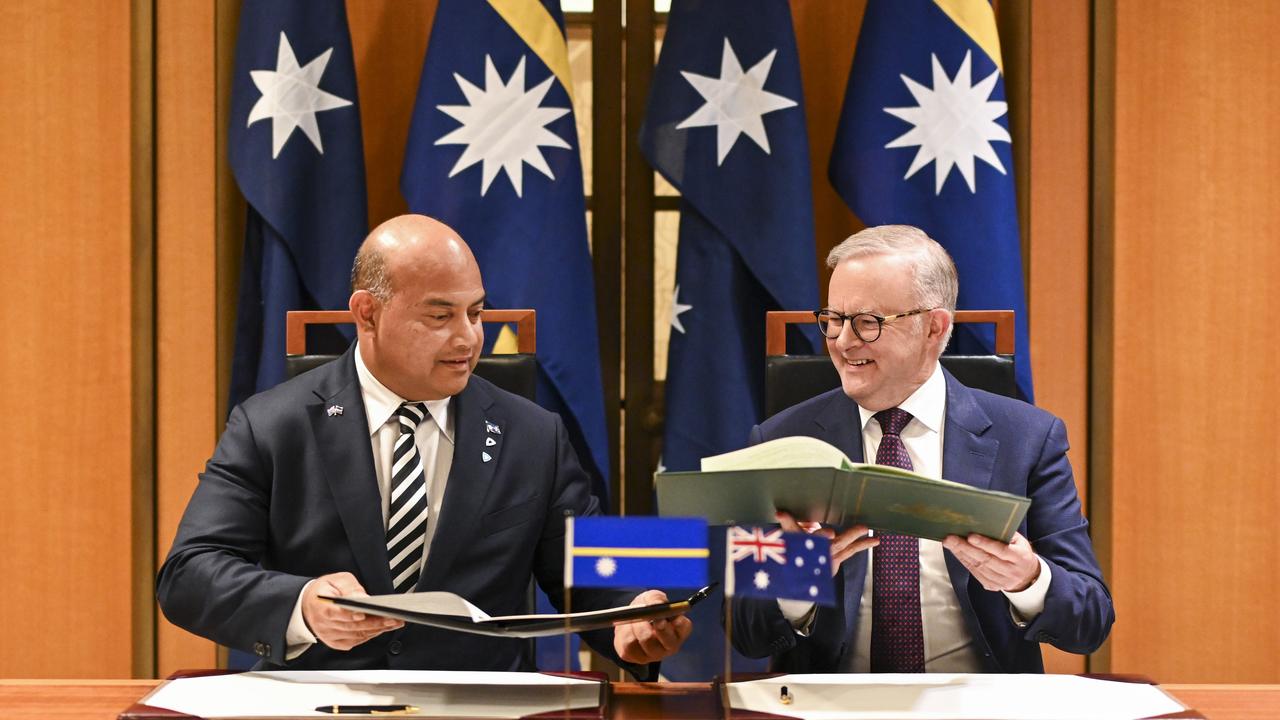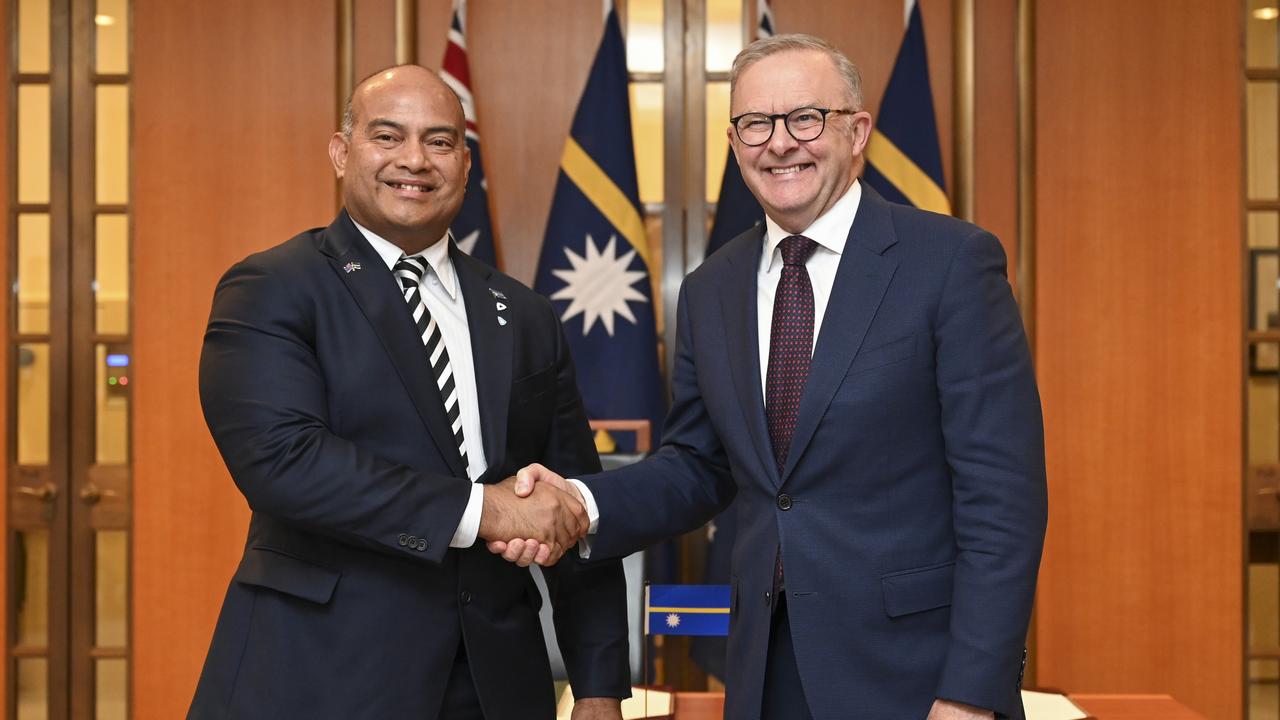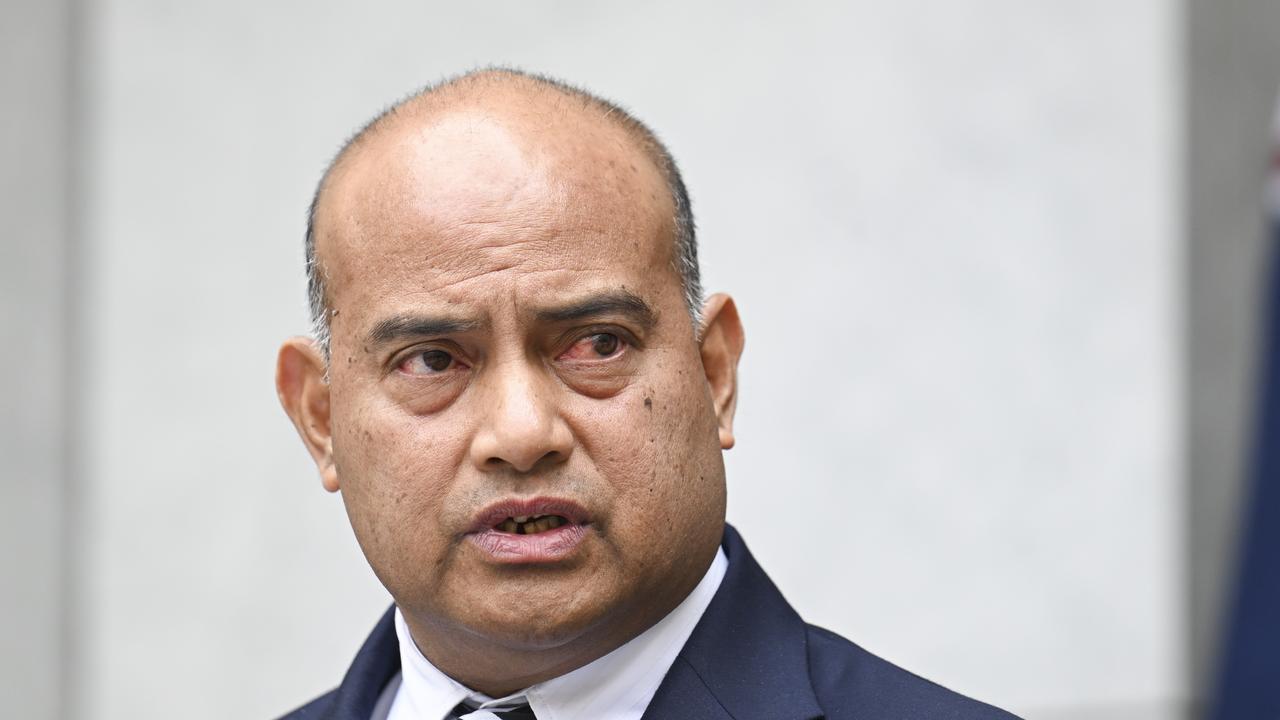Nauru signs treaty with Australia in latest blow to Beijing’s influence
Anthony Albanese has signed a new deal with a key Pacific Islands nation to counter China’s ambitions in the strategically important region.
Nauru has signed a pact with Australia, massively deepening economic and security ties in a major blow to China’s Pacific ambitions.
Prime Minister Anthony Albanese and Nauruan President David Adeang signed the Nauru-Australia Treaty in Canberra on Monday, compelling the tiny Pacific nation to get Australia’s sign-off on any engagement in its security, banking and telecommunications sectors.
In return, Australia will pump $100m into budget support and $40m into policing and security development in Nauru over five years.
Speaking to reporters alongside Mr Adeang after signing the deal, Mr Albanese said it would take the bilateral relationship “to a new level”.


“We share geography, we share history, we share a region, and of course, we share deep and strong bonds between our people,” he said.
“So I’m delighted to join President Adeang here in signing the Nauru Australia treaty to strengthen our relationship even further.
“Australia is Nauru’s largest economic security and development partner.
“We view this partnership as a serious responsibility and a sign of the enduring respect between our two nations together in the spirit of friendship and co-operation.”
Under the treaty, the Commonwealth Bank will also prop up the country’s banking sector and have a brick and mortar presence after Bendigo Bank withdraws next year.

“The treaty underscores Australia’s commitment to strengthen Pacific led solutions to meet our region’s security, economic and development needs,” Mr Albanese said.
“This treaty will make our region stronger and it will make it safer. This is a good day for Australia. This is a good day for Nauru, and it is a good day for the security and resilience of the Pacific region.”
Meanwhile, Mr Adeang hailed the deal as a “historic milestone”.
“The signing of this treaty reaffirms our deep friendship and shared commitment to building peaceful, prosperous and secure future for our two nations and for our region,” he said.
“To Nauru, Australia is not just a friend, but family, bound by shared history and guidance.”
He noted that the United Nations has listed Nauru as the fifth most vulnerable country in the world, measured by several metrics, including economic resilience.

“This treaty strengthens our own economy, enhances also our mutual security and addresses critical challenges like the banking and ensuring inclusive growth and resilience for our people,” Mr Adeang said.
“We appreciate Australia’s steadfast support as we try to address our unique development challenges, while we continue diversifying our economy, exploring innovative opportunities and safeguarding our region’s peace and stability.”
China has been courting Australia’s smaller Pacific neighbours for years, offering cheap infrastructure and debt-trapping them with unserviceable loans.
Chinese officials visited Nauru last week in a bid to bolster relations.
But this latest agreement has all-but blocked any attempts by Beijing to exert its influence in the island’s key sectors.
In August, the Albanese government unveiled its Pacific Policing Initiative (PPI), committing $400m to building up policing capabilities across the region.
It came after the Solomon Islands signed a policing pact with China.
Uniformed Chinese police have also popped up in Kiribati, with both Kirabati and Chinese officials keeping it under wraps until Reuters exposed it in February.





